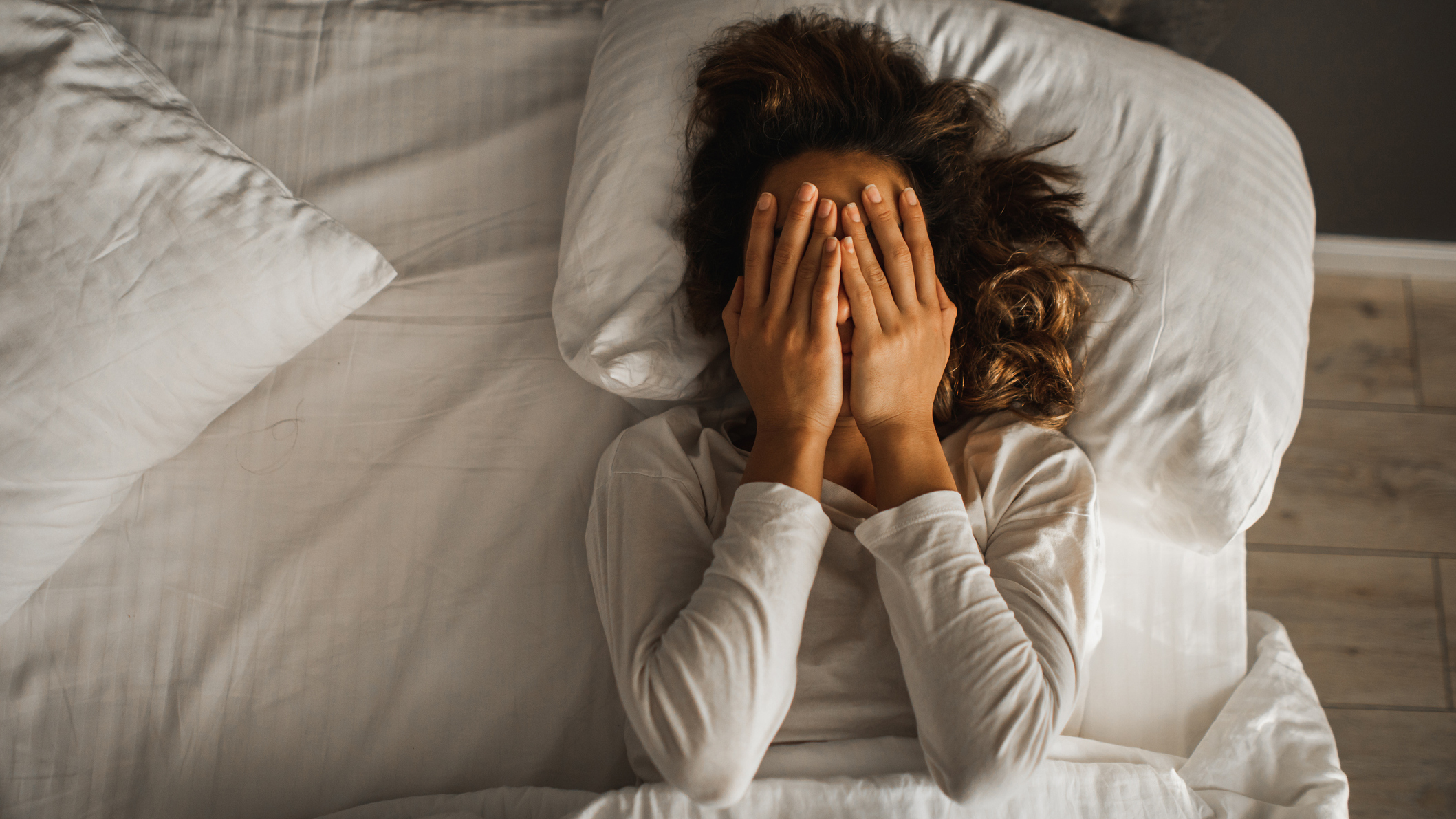The Most Common Sleep Mistake This Expert Sees People Make And How To Fix It
Take a step back and see what’s stopping you from sleeping

It’s easy to get stressed out when you feel like you’re not getting enough sleep. I’ve certainly experienced that in the past, especially on a night when I want to be well-rested for the day ahead. I would go to bed early then find I’m still awake hours later, stressing that I’m not sleeping.
I spoke to clinical psychologist Dr Romi Ran, whose areas of interest include sleep, as well as food and eating.
Ran has been helping clients improve their sleep for over 15 years, and I was curious to know what sleep mistakes people make most often, and what advice she would give to avoid these pitfalls.
The Most Common Sleep Mistakes People Make
You’ve probably heard that you should be aiming to get seven to eight hours of sleep a night. According to Ran, that might work for some, but it may not apply to everyone.
“The biggest mistake I see is people listening to external advice about how much sleep they need and when, rather than listening to what their own body is saying it needs,” says Ran. “Each body is different and needs different things at different times. My advice is really about empowering people to trust themselves more.”
“For some people, five hours of sleep is what works for them, for their particular constitution,” says Ran. “That's evident by the fact that there are plenty of thriving, healthy, successful, happy people who have no problem functioning on less [than eight hours of] sleep.”
“The other common mistake I see is over-emphasizing the practical sides of sleep and not really looking at the mental or psychological relationship we have with sleep,” says Ran.
Sign up for workout ideas, training advice, reviews of the latest gear and more.
While practical aspects are important—such as reducing caffeine intake, not doing high-intensity exercise in the evening and avoiding screens before bed—Ran tends to focus more on the psychological aspects of sleep, including cognitive distortions. “That’s a fancy way of saying unhelpful, and usually, untrue thinking patterns. For example, people often catastrophize the consequences of poor sleep. As a result, they feel more stressed, cortisol pumps through their body and they're not able to relax to fall asleep. The whole cycle perpetuates itself.”
That sounds familiar. So, what can we do to avoid these unhelpful thought patterns?
Dr Romi Ran’s Top Tip For Getting Better Sleep
“Essentially, sleep is all about relaxing,” says Ran. “So, it’s about cultivating a life that enables you to relax.” Ran’s idea is to take a look at your daily life and work out what you need to change to enable you to relax when you want to. “It’s not just about sleep, your overall wellbeing will improve too,” says Ran. “It might be that you need to learn how to set better boundaries in your life, perhaps if you have a stressful job, try incorporating stress management techniques so that you can start to relax.”
I now know that going to bed early when I’m not particularly tired doesn’t work for me. If I do find myself lying awake, I’ll read as it’s something that relaxes me, and keep in mind that I may not need as much sleep as I thought I did.
About Our Expert

Dr Romi Ran is a clinical psychologist, a protected title in the UK which requires her to be registered with the Health & Care Professions Council. She is also a member of the British Psychological Society. She gained a Doctorate in Clinical Psychology from The University of Oxford and has worked as a research coordinator in the Department of Psychology at Harvard University.

Camilla Artault is a writer and keen runner. She has covered women’s running gear – testing leggings, jackets, running bras, tops and shorts – for Coach since 2018, as well as interviewing experts and writing about a range of health and lifestyle topics.
